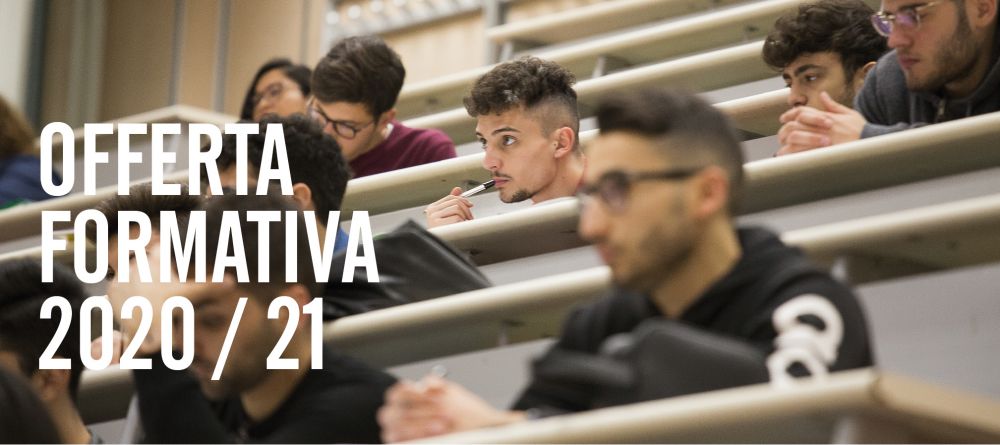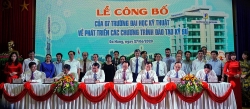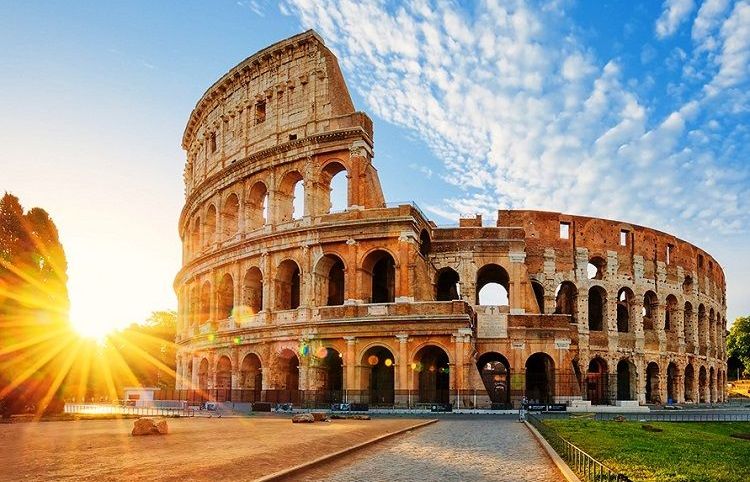
Italian education system & several things before making decisions on study in Italy
Latest
| TIN LIÊN QUAN | |
| Deputy Prime Minister Pham Binh Minh holds phone talks with Italian FM | |
| Vietnam provided medical support to help Italy in combating COVID-19 | |
 |
| The Italian education system is divided into three Cycles. (Photo: Unical.it) |
The Hanoi University (HANU) is one of the three Vietnamese partners attending the RecoAsia Project (code: 609764-EPP-1-2019-1- ITEPPKA2-CBHE-SP) - an Erasmus+ KA2 "Capacity Building" Project with the aim to facilitate and promote recognition of foreign qualifications and degrees between Asian and European countries.
In order to help the students with picking the right courses of their choosing, some members of the research group from HANU will provide students with detailed information on Education System of European countries (Italy, Spain, German, United Kingdom, etc.) In this article, the research group will provide readers with information on the Italian Education System. (The system for degree courses at the Art Academies will be mentioned in a later article).
The Italian Education system is divided into three Cycles:
- First Cycle: Bachelor Degree (3 years)
- Second Cycle: Master Degree (2 years)
- Third Cycle: Ph.D. (at least 3 years of research)
After finishing the first cycle, the student will be awarded a Bachelor's Degree called Laurea and gain the title of Dottore. This is followed by the second cycle / Master's degree which is called Laurea Magistrale/Laurea Specialistica/ Laurea a Ciclo Unico, along with the title of Dottore Magistrale. Lastly, the Ph.D. in Italy is called Dottorato di Ricerca and the title of Dottore di Ricerca will be awarded after completion. These are the only three official degree courses in the Italian Education System (also known as the National Didactic System.)
Before a University degree course is officially authorized, Italian Universities would have to develop the program and the program has to be constructed along with the following criteria in mind: the number of professors and lecturers, facilities, number of subjects and credits, and an estimation of annual enrollment, etc.
The program is then delivered to The Italian National University Council (Consiglio Universitario Nazionale) – CUN – to be assessed and only adopted if the program has met the mentioned criteria above. The program will then be provided with an official training code (the code will be printed on the degree) and there will be an annual inspection to verify the quality of the course.
Apart from the 3-degree cycles, in the Italian Education System, there are other post-graduate courses that are not academic in nature and therefore do not belong to the National Didactic System (Ordinamento Didattico Nazionale). Among these, two primary examples are Master Universitario di Primo Livello (MU1) and Master Universitario di Secondo Livello (MU2). These two courses specialize in occupational training and are usually offered under the autonomous responsibility (including program structures, educational methods, and duration of the study) of each university (or organized in cooperation with enterprises). The qualifications are provided by the Universities and have no relation to the official education system.
These two mentioned qualifications do not belong to the National Didactic System – and therefore upon completion, the learner will only be granted the qualification called Diploma di Master without any academic title whatsoever and without the capability for further studies such as Magistrale or Ph.D. The title of Master within the MU1 and MU2 degree of Italy is a confusing concept both in terms of wording and academic authenticity and can be easily confused with the Master title in Anglo-Saxon Education System. If one were to translate word literally by word the name of MU1 and MU2 qualifications into Vietnamese, they would either be Thạc sĩ cấp độ 1/ Thạc sĩ bậc 1 and Thạc sĩ cấp độ 2/ Thạc sĩ bậc 2 – which do not exist in Vietnamese Education System.
Below are some more details on the mentioned courses:
- Master Universitario di Primo Livello (MU1): 1 year of studying, 60 ECTS credits with the entry requirement being a Laurea / Bachelor degree. This qualification is categorized to be on the second cycle of the Education Systems and on level 7 of EQF (European Qualifications Framework) – the same level as Laurea Magistrale. However, MU1 qualifications do not grant access to the actual Master-level (Laurea Magistrale) or PhD-level (Dottorato di Ricerca) degree courses.
- Master Universitario di Secondo Livello (MU2): 1 year of studying, 60 ECTS credits with the entry requirement being a Laurea Magistrale, Laurea Specialistica, or Laurea a Ciclo Unico. This qualification is categorized to be on the third cycle of the Education Systems and on level 8 of EQF– the same level as Dottorato di Ricerca. However, MU2 qualifications do not grant access to Ph.D. courses.
Moreover, there are no links between MU1 and MU2, a MU2 course does not require an MU1 qualification. (the requirements for accessing MU1 and MU2 are entirely different)
The admission requirement for a Ph.D. (Dottorato di Ricerca) course is a Master's degree (Laurea Magistrale/ Laurea Specialistica/ Laurea a Ciclo Unico) which has already been defined in Decision 270 on 22/10/2004 by the Italian Ministry of Higher Education and Research. However, according to Interdepartmental Decision on 09/07/2009, anyone with the Diploma di Laurea from the previous Italian Education System (before the application of Bologna Process in 1999) is considered to have passed the second cycle in the new system and therefore will be able to access Ph.D. (Dottorato di Ricerca) courses.
| ADVICES: Based on our knowledge and experiences, the research group can offer some advice for the students when selecting courses and for researchers constructing mutual learning programs: - Select a course in the Italian system that meets with your expectation and personal aims. Students should carefully research courses name, admission requirements, education methods, qualifications on completion, etc. When applying, it is important to provide original degrees with notarized translation documents and Declarations of Value (Dichiarazione di Valore) – provided by the Italian Embassy and Degree Supplements (if provided). From the mentioned documents, the enrollment council would be able to determine students' level and admission requirements for them. - For researchers constructing programs with Italian Universities, especially Master's Degree, it is important to pick programs that met the requirements and belong to the Italian National Didactic Systems, which are programs with codes that defined them as Laurea Magistrale/ Laurea Specialistica/ Laurea a Ciclo Unico. |

| UNESCO launches program seeking innovative ideas for ocean without plastic in Vietnam The United Nations Educational, Scientific and Cultural Organisation (UNESCO) in cooperation with the Cu Lao Cham - Hoi An World Biosphere Reserve officially launched in ... |

| Ministry to support Vietnamese students in US After the US adjusted its temporary visa regulations, the Ministry of Education and Training has said that US universities will take specific measures to protect ... |

| Danang University of Science and Technology hosts Announcement Ceremony of developing engineering curricula On June 27, the University of Science and Technology – The University of Danang (UD) hosted the Announcement Ceremony of developing engineering curricula with 6 ... |




















